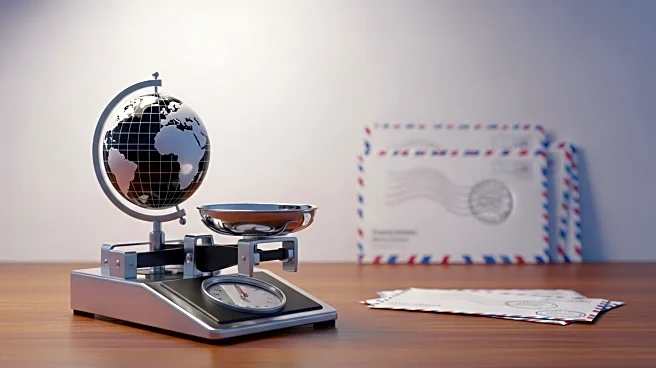What is the story about?
What's Happening?
The U.S. government has terminated the de minimis exemption, which previously allowed duty-free imports for goods valued under $800. This change, effective August 29, 2025, was initiated by President Trump, who initially lifted the exemption for China and later extended it globally. The decision aims to curb the smuggling of dangerous drugs into the U.S. through duty-free parcels. As a result, international postal services have restricted shipments to the U.S., citing increased workload and uncertainties. The new rules require goods to be subject to applicable U.S. duties based on their country of origin, with a transitional fee option available for six months. Exceptions are made for genuine gifts valued under $100.
Why It's Important?
The removal of the de minimis exemption is significant for international trade and logistics, particularly affecting postal services and e-commerce platforms like Temu and Shein. The change is expected to reduce the volume of low-value parcels entering the U.S., impacting businesses that rely on duty-free imports. Express delivery services such as FedEx and UPS are likely to benefit, as they are expected to handle the increased demand for parcel transportation. The policy shift may also lead to increased revenue from duties, as evidenced by the $492 million collected from Chinese parcels since the exemption was lifted.
What's Next?
The U.S. government has urged regular postal services to enhance information collection on parcel contents to comply with the new regulations. As express providers take over the business from postal services, there may be shifts in the logistics industry. Stakeholders, including international shippers and e-commerce platforms, will need to adapt to the new duty requirements and explore alternative shipping strategies. The transitional period allows for adjustments, but long-term compliance will be necessary.















